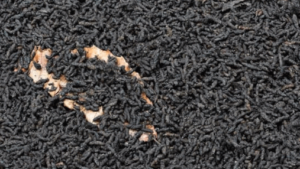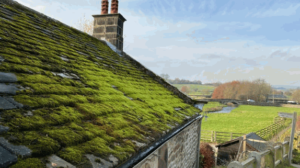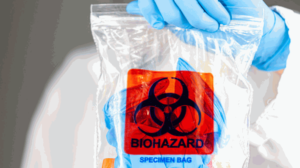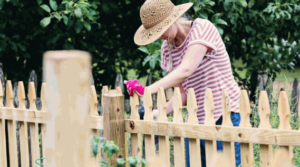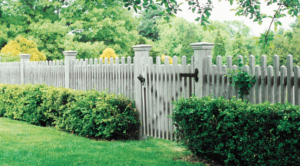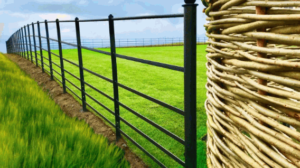Baking powder is a versatile ingredient commonly used in baking, but it can also be used for cleaning.
We will explore how baking powder works as a cleaning agent, its benefits, and different ways to use it for cleaning various surfaces.
Find out which surfaces you can clean with baking powder, safety concerns, and alternatives for cleaning.
If you’re looking for natural cleaning solutions, keep reading to learn more about the power of baking powder!
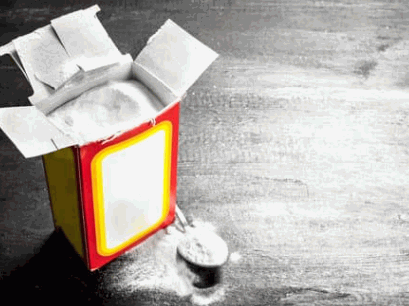
What Is Baking Powder?
Baking powder is a chemical leavening agent composed of baking soda and an acidic ingredient, usually cream of tartar, which produces carbon dioxide gas when mixed with wet ingredients.
When baking powder is combined with liquid, the acidic component (cream of tartar) reacts with the baking soda, resulting in a release of carbon dioxide gas bubbles. These bubbles get trapped in the mixture, causing it to expand and rise, leading to a light and airy texture in baked goods. This chemical reaction helps baked goods, such as cakes, muffins, and quick breads, to achieve the desired fluffiness and volume.
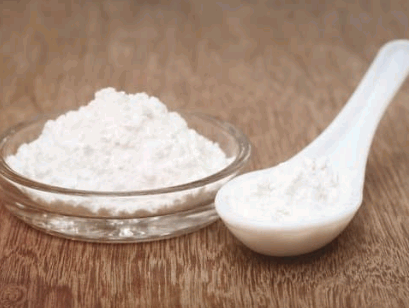
How Does Baking Powder Work?
Understanding how baking powder works involves recognizing its ability to generate carbon dioxide gas bubbles when combined with moisture and heat during the baking process.
Uncover more: Best Way To Clean Laminate Floors
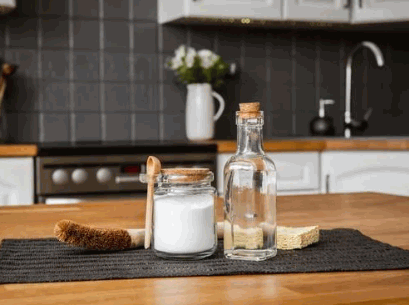
Can You Use Baking Powder For Cleaning?
Baking powder can serve as an effective and versatile cleaning agent beyond its culinary applications due to its ability to neutralise odors and act as a mild abrasive.
Many people are surprised to discover the myriad of household cleaning tasks baking powder can assist with. Its deodorizing properties make it perfect for freshening up fabrics like carpets and upholstery. Mixing baking powder with water to form a paste can also effectively remove tough stains on various surfaces, from countertops to sinks.
As a mild abrasive, it can be used to scrub away grime on pots, pans, and even bathroom tiles, leaving them sparkling clean without harsh chemicals. The next time you run out of traditional cleaners, consider reaching for the baking powder in your pantry for a more natural alternative.
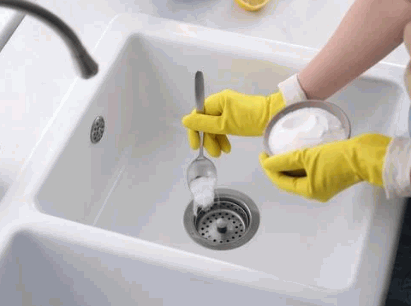
What Are The Benefits Of Using Baking Powder For Cleaning?
The benefits of utilising baking powder for cleaning include its ability to effectively neutralise odours, tackle tough stains, and act as a gentle yet efficient acid-base cleaner.
One of the greatest advantages of incorporating baking powder into your cleaning routine is its versatility. Not only can it freshen up your carpets by absorbing odours, but it can also be used to scrub away stubborn stains on kitchen surfaces. Additionally, baking powder is known for its environmentally friendly properties, making it a safe and natural alternative to harsh chemical cleaners.
Whether you need to deodorise your refrigerator or scour your cookware for grime, baking powder can serve as a multi-purpose solution that is both effective and eco-friendly. Its gentle abrasiveness makes it suitable for delicate surfaces, ensuring a thorough cleaning without causing damage.
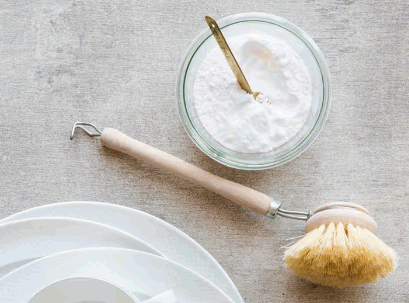
What Are The Different Ways To Use Baking Powder For Cleaning?
There are various methods to utilise baking powder for cleaning, such as creating a paste with water, using it as a scrubbing agent, or combining it with vinegar for enhanced cleaning power.
When mixed with water to form a paste, baking powder can be applied to surfaces like sinks, countertops, and hobs to lift dirt and grime effectively. The abrasive nature of baking powder makes it an excellent option for scrubbing away tough stains on tiles, grout, and even oven interiors without causing scratches. For a more potent cleaning solution, combining baking powder with vinegar creates a fizzing reaction that helps to break down grease and soap scum in bathrooms and kitchens.
What Surfaces Can You Clean With Baking Powder?
Bicarbonate of soda is suitable for cleaning a variety of surfaces, including stainless steel sinks, eliminating rubbish bin odours, and acting as a gentle cleaner for kitchen appliances.
Its abrasive yet non-toxic nature makes it ideal for scrubbing away tough stains on worktops and chopping boards. Mixing bicarbonate of soda with water creates a paste that can effectively remove grease buildup on hobs and cooker hoods.
Scattering a mixture of bicarbonate of soda and a few drops of essential oils in shoes helps in neutralising unwanted odours. This versatile powder can also brighten dull-looking tea and coffee mugs by gently scrubbing them, leaving a sparkling finish.
Can You Use Baking Powder On Hardwood Floors?
Using baking powder on hardwood floors can help in removing stubborn stains and dirt while maintaining the natural shine and finish of the wood surface.
One of the key advantages of using baking powder is its gentle abrasive nature, making it suitable for cleaning delicate hardwood surfaces without causing damage. When mixed with water to form a paste, baking powder can act as a mild scrubbing agent, effectively lifting dirt and grime from the wood grains. The natural deodorising properties of baking powder helps eliminate any musty odours that may be lingering on the floor.
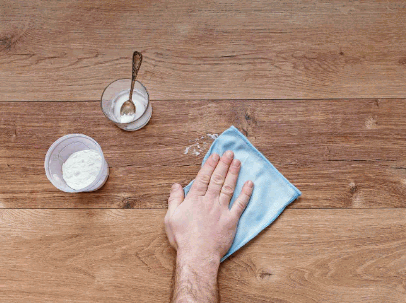
Can You Use Baking Powder On Carpet?
Bicarbonate of soda is a versatile cleaner for carpets as it can absorb odours, lift stains, and serve as a natural alternative to commercial laundry boosters for freshening up carpeted areas.
One of the key benefits of using bicarbonate of soda on carpets is its exceptional ability to neutralise and absorb unpleasant odours that may linger deep within the fibres. Whether it’s pet smells, food odours, or musty scents, sprinkling bicarbonate of soda on the carpet surface can help eliminate these unwanted smells effectively.
The stain-lifting properties of bicarbonate of soda make it a valuable ally in tackling tough spots and spills on carpets, leaving them looking fresh and clean. When used as a laundry booster, bicarbonate of soda can enhance the cleaning power of detergents, helping to maintain the cleanliness and freshness of carpets over time.
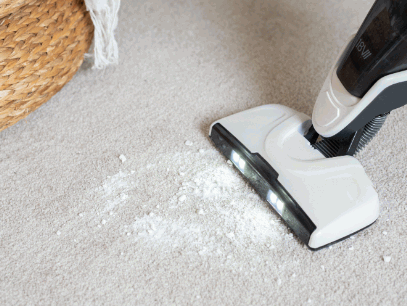
Are There Any Surfaces You Should Avoid Using Baking Powder On?
Whilst baking powder is safe for most surfaces, it is advisable to avoid using it directly on aluminium materials due to potential reactions that may damage the metal surface.
Aluminium is a reactive metal that can undergo chemical reactions when exposed to certain substances like acidic compounds, including those found in baking powder. When the baking powder comes into contact with aluminium, it can cause discolouration, corrosion, or even pitting on the surface of the metal. To prevent this, it is recommended to use alternative materials or protective layers on aluminium surfaces when working with baking powder. By taking this precaution, you can maintain the integrity of your aluminium items and prevent any unwanted damage.
Why Should You Avoid Using Baking Powder On Aluminium?
Avoiding the use of baking powder on aluminium surfaces is crucial as the alkaline properties of baking powder can initiate a reaction that tarnishes the metal and affects its appearance.
This chemical reaction occurs when the baking powder comes into contact with the aluminium surface, leading to a tarnishing process that can result in discolouration and a dull appearance.
It is essential to understand that aluminium is a reactive metal, and when paired with baking powder, the two substances create a detrimental interaction that can impact the look and quality of the surface.
Are There Any Safety Concerns When Using Baking Powder For Cleaning?
Whilst baking powder is generally safe for cleaning, precautions should be taken when mixing it with other substances like hydrogen peroxide or distilled water to avoid potential chemical reactions.
Proper storage of baking powder is crucial to ensure its efficacy and safety. It should be stored in a cool, dry place away from sources of moisture and heat.
Furthermore, always check the expiry date before use to guarantee its effectiveness. It’s also important to wear protective gloves and a mask when handling baking powder for cleaning purposes to avoid skin irritation and inhalation of the fine powder particles. Remember, safety should always be the top priority when using household products in unconventional ways.
What Precautions Should You Take When Using Baking Powder For Cleaning?
When utilising baking powder for cleaning tasks, it is essential to wear protective gear like gloves, avoid contact with skin or eyes, and ensure adequate ventilation to minimise potential irritation.
It is recommended to keep baking powder in its original container, away from moisture and heat sources, to prevent any chemical reactions that could lead to safety hazards. In case of skin contact, wash the affected area with copious amounts of water and seek medical attention if irritation persists. If baking powder gets into the eyes, flush with water for at least 15 minutes and contact a healthcare professional immediately.
For proper ventilation, open windows or use exhaust fans to circulate air and prevent inhaling excessive amounts of the powder, which could lead to respiratory issues. Remember to store baking powder out of reach of children and pets to avoid accidental ingestion or exposure.
What Should You Do If Baking Powder Comes In Contact With Your Skin Or Eyes?
In case of contact between baking powder and skin or eyes, promptly rinse the affected area with copious amounts of water to neutralise the alkaline nature of the powder, and seek medical assistance if irritation persists.
After rinsing the affected area, remove any contaminated clothing or accessories to prevent further exposure.
- Do not rub the skin vigorously, as this can worsen the irritation by spreading the powder.
- Flush the eyes with lukewarm water for at least 15 minutes if they have come into contact with baking powder.
If symptoms persist or if a large amount of baking powder has been ingested, contact a poison control center or seek immediate medical attention.
What Are Some Alternatives To Baking Powder For Cleaning?
Whilst baking powder is an effective cleaner, alternatives like bicarbonate of soda can also serve as versatile cleaning agents with similar properties, making them ideal substitutes for various household cleaning tasks.
One of the key advantages of using bicarbonate of soda for cleaning is its mild abrasive nature, which allows for the removal of tough stains and grime without damaging surfaces. Bicarbonate of soda’s ability to neutralise odours makes it a popular choice for freshening up carpets, fridges, and even shoes. Not only is bicarbonate of soda non-toxic and environmentally friendly, but it is also a cost-effective solution for maintaining cleanliness in the home. Its versatility extends to unblocking drains, polishing cutlery, and even deodorising upholstery.
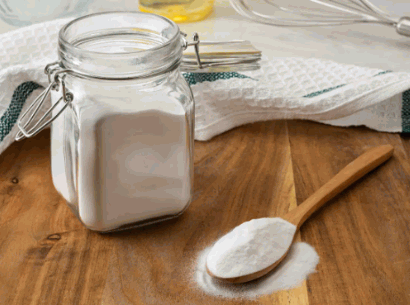
Can You Use Baking Soda Instead Of Baking Powder For Cleaning?
Bicarbonate of soda can be a suitable alternative to baking powder for cleaning due to its mild abrasive properties, deodorising effects, and compatibility with vinegar for enhanced cleaning solutions.
Regarding cleaning, the bicarbonate of soda stands out due to its versatility. Its abrasive nature makes it effective for scouring surfaces without scratching them. Its natural deodorising capabilities can freshen up spaces by absorbing unpleasant odours. A unique feature of bicarbonate of soda is its ability to react with vinegar, creating a powerful fizzy solution that can tackle tough stains and grime effectively. This compatibility with vinegar enhances its cleaning abilities and makes it a go-to household ingredient for various cleaning needs.
What Are Some Other Natural Cleaning Agents You Can Use?
Along with the bicarbonate of soda, natural cleaning agents like lemon juice can provide effective cleaning solutions through their acidic properties that promote a fizzing action for tackling stains and dirt.
Lemon juice’s acidic nature makes it a versatile and eco-friendly alternative for various cleaning tasks. When combined with other natural ingredients such as vinegar or bicarbonate of soda, its cleaning power is amplified, offering a potent solution for removing grime and grease.
The fizzing action created by lemon juice can help break down tough stains and mineral deposits, making it ideal for tackling kitchen and bathroom surfaces. Lemon juice’s fresh scent leaves a pleasant aroma after cleaning, enhancing the overall cleanliness and freshness of the space.

